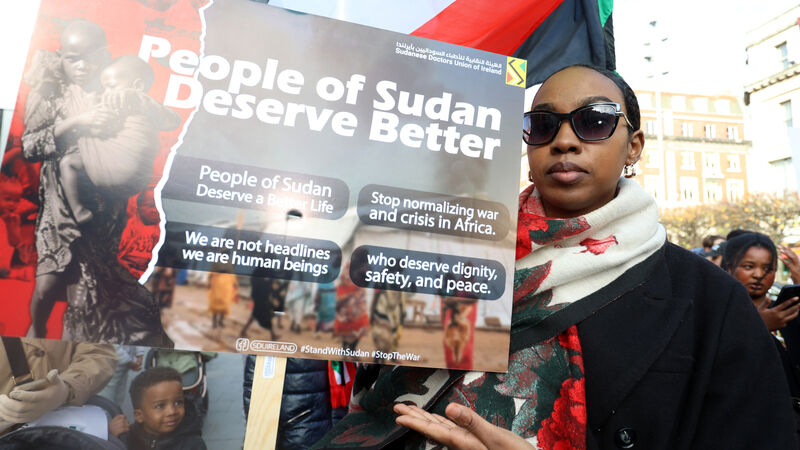Will we let hunger define another generation?

Alaa Adam from Sudan protesting against the RDF Militia and atrocities in El Fasher, Sudan, on O'Connell Street, Dublin. Picture: Leah Farrell/RollingNews.ie
On the banks of Dublin’s River Liffey, a haunting bronze procession stands as a reminder that hunger is never just about food.
The Famine Memorial depicts gaunt figures frozen in exodus an image of dignity, survival, and memory. The Great Famine (1845–1849) halved Ireland’s population, and its legacy endures in the nation’s moral conscience.













